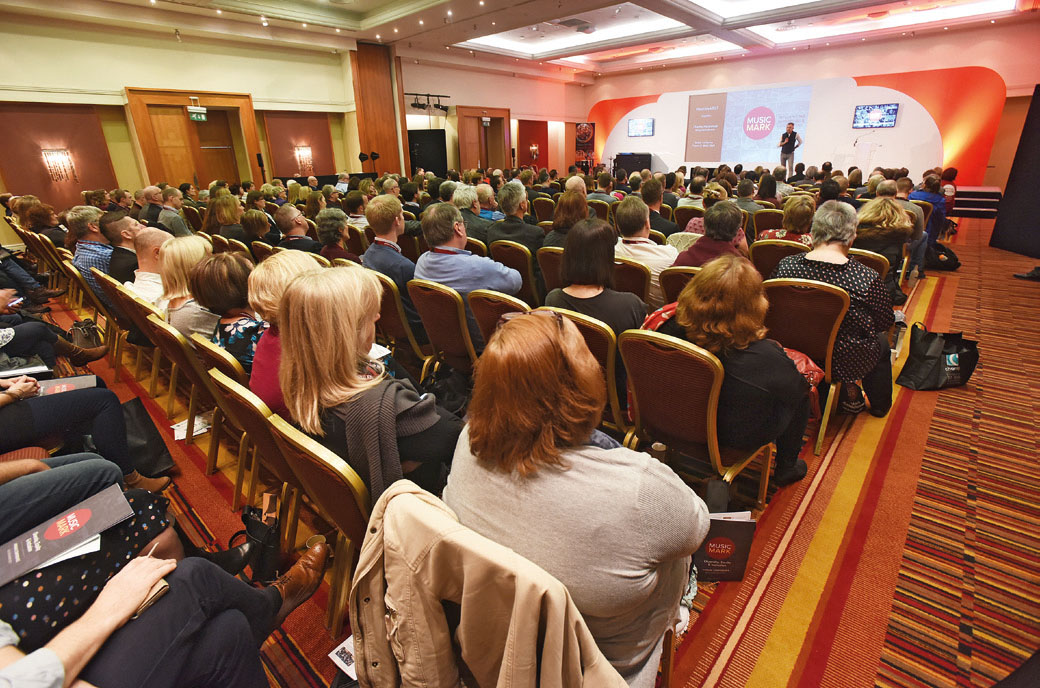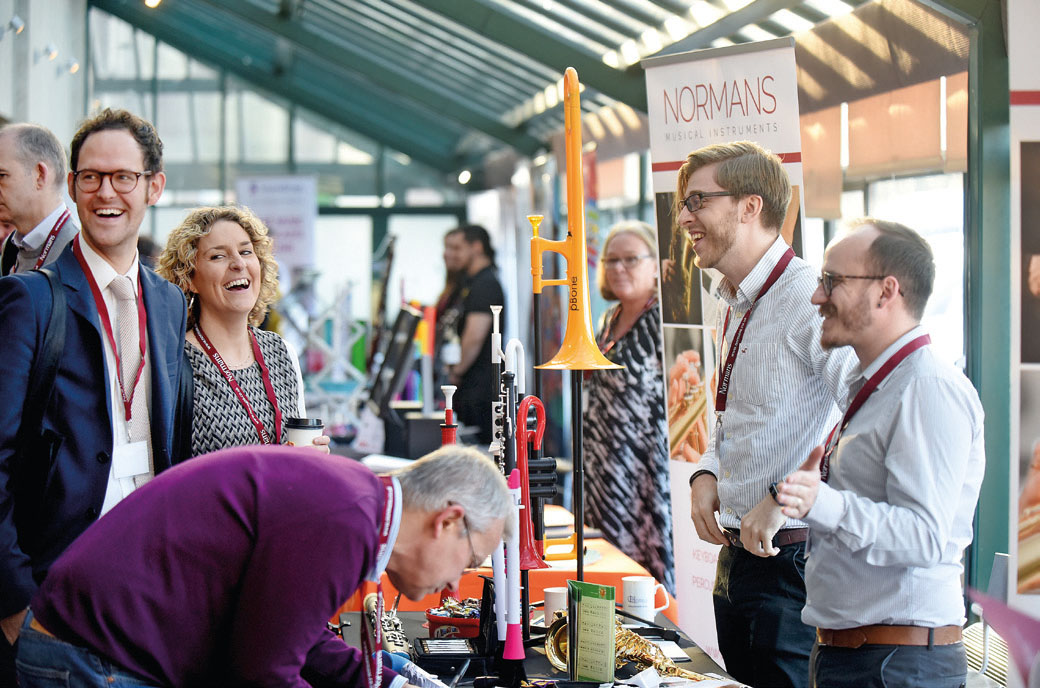
Talking in her home city of Winchester on a sunny summer afternoon, Bridget Whyte is in an upbeat mood. One year into her role as chief executive of Music Mark (MM), she is just back from the organisation's summer summit in Stratford, East London. The event was blessed with good weather; a packed auditorium; lively discussions; an engaging speech from Arts Council England (ACE) chief executive Darren Henley; and special musical performances by New Young Voices Collective and Newham Music's Roma Bridging Sounds Orchestra.
‘It was a huge relief,’ she says, ‘because our spring summit was badly hit by the snow – lots of delegates couldn't make it and many had to leave early. We kept the discussions going on Twitter but it's not the same as the buzz you get from a successful meeting.’
At the time, Whyte was still getting to grips with her new job and was in the middle of reshaping MM's small administrative team. She admits that it has been a challenging year. ‘But we have a great bunch of trustees and critical friends who have helped to steer us through, and it has ended with all our existing members renewing their subscriptions.’ Stephanie Kennedy and Rosie Saxton are settling in to their respective roles of communications and marketing manager and membership and events administrator, and Whyte feels that MM is now on an even keel.
Continuing the nautical metaphor, she describes the organisation as ‘a very small ship with a small crew but a big remit’. Music Mark's previous incarnation was as two organisations: the Federation of Music Services (FMS) and the National Association of Music Educators, both of which had a very strong voice in the sector for many years. As the sector itself has changed and fragmented, MM has been forced to adapt in order to ensure that it remains relevant to the music services, hub partners and individual music educators who are its members.

Charles Hazlewood speaking at Music Mark's 2017 conference © MARC KIRSTEN
The exhibitor's space at Music Mark's 2017 conference © MARC KIRSTEN
In its last few years, the FMS distributed government money –Whyte acknowledges that this created a perceived bias in the past towards England, a perception that was probably justified, but her aspiration is for MM to champion music education throughout the UK.
‘I've already made connections with music education organisations in Scotland and Northern Ireland and we are very concerned about the situation in Wales, where local authority funding is being cut. Music services are in serious trouble and there is a real danger of instrumental music becoming an activity available only to those who can afford to pay.’
Making a mark
Whyte herself came to MM having worked as a freelance consultant for Youth Music, the Music Manifesto, the Department for Education and ACE, and helped to develop the original concept of hubs. She has spent most of the past five years with the British Council, working around the world helping other countries to embed singing in schools. Returning to the UK, she is pleased to see that there now seems to be a widespread understanding of what a hub is and how music education partnerships should work – at least from those on the inside.
‘There is still patchiness in provision, and of course there are areas where schools and music services cannot easily identify appropriate partners, but in general the idea does seem to be bedding down. In primary schools, whole-class instrumental teaching seems to have evolved and developed well. As for singing, although schools now have to buy in to Sing Up or use other resources, the legacy of the National Singing Programme is very strong. More teachers and schools feel they can include singing – the fear has gone.’
Secondary school music, however, has seen changes that give serious cause for concern. ‘I'm hearing horrifying stories about carousel teaching and a condensed KS3. I should say that I don't disagree with an emphasis on the STEM subjects – I do think they are important, but the school day in the UK should be long enough to allow for other subjects as well. In Brazil, by contrast, where children go to school in shift systems for just three hours a day, a law was passed three years ago to say that music must be part of the curriculum.’
Issues relating to child licensing are also at the forefront of MM's current agenda, and its training programme has been relaunched as a five-point Leadership Development Programme, supported by ACE.
The summer summit was part of MM's year-long consultation with its members and the sector on the National Plan for Music Education and what will happen when funding comes to an end in 2020. ‘We are working closely with Youth Music, ACE and the Music Commission (initiated by ABRSM) and our message to the government will be “please revise the plan, don't rewrite it”. Hubs and services have learned how to work in their local contexts, and they need to be allowed the autonomy to do that.’
The consultation will conclude at MM's national conference in November. ‘The theme is Youth Voice,’ says Whyte, ‘and I am keen to hand over one of the sessions to young people – Sound Connections is helping us with that. The conference is not just for hub leaders, it is open to the whole sector and includes CPD opportunities and sessions on safeguarding, wellbeing and workforce development.
‘The message we want to get across is that MM is going from strength to strength, our membership is growing and we are here to support music education in all its forms and settings, through training, networking and lobbying.’
Bridget Whyte's speech at last year's Music Mark annual conference, outlining her vision for the next five years, is on the organisation's website. Booking is now open for the 2018 conference, taking place 22–23 November in Kenilworth musicmark.org.uk




